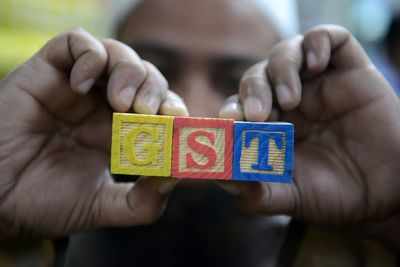- News
- Business News
- FAQs News
- GST exemption limit in India
Trending
This story is from January 24, 2019
GST exemption limit in India

The government has made it mandatory for business whose aggregate turnover in a financial year exceeds Rs 20 lakh to register under Goods and Services Tax (GST).
The GST exemption limit for Northeastern and hilly states, including Arunachal Pradesh, Assam, Jammu & Kashmir, Manipur, Meghalaya, Mizoram, Nagaland, Sikkim, Tripura, Himachal Pradesh and Uttarakhand, is Rs 10 lakh.
However, the GST Council on January 10, 2019, doubled the GST exemption limit to Rs 40 lakh for micro, small and medium enterprises (MSMEs).
The GST exemption limit for northeastern and hilly states has also been doubled to Rs 20 lakh.
What is Aggregate Turnover in GST?
The GST registration requirement depends on the aggregate turnover of a business. It is a crucial parameter for deciding the eligibility of business to avail the benefit of GST exemption and for determining the threshold limit for composition levy.
The law defines aggregate turnover as "the aggregate value of all taxable supplies (excluding the value of inward supplies on which tax is payable by a person on a reverse charge basis), exempt supplies, exports of goods or services or both and inter-state supplies of persons having the same Permanent Account Number, to be computed on an all-India basis but excludes Central tax, State tax, Union territory tax, Integrated tax and cess."
The GST exemption limit for Northeastern and hilly states, including Arunachal Pradesh, Assam, Jammu & Kashmir, Manipur, Meghalaya, Mizoram, Nagaland, Sikkim, Tripura, Himachal Pradesh and Uttarakhand, is Rs 10 lakh.
However, the GST Council on January 10, 2019, doubled the GST exemption limit to Rs 40 lakh for micro, small and medium enterprises (MSMEs).
The GST exemption limit for northeastern and hilly states has also been doubled to Rs 20 lakh.
The new GST rate will come into effect from 1 April 2019.
What is Aggregate Turnover in GST?
The GST registration requirement depends on the aggregate turnover of a business. It is a crucial parameter for deciding the eligibility of business to avail the benefit of GST exemption and for determining the threshold limit for composition levy.
The law defines aggregate turnover as "the aggregate value of all taxable supplies (excluding the value of inward supplies on which tax is payable by a person on a reverse charge basis), exempt supplies, exports of goods or services or both and inter-state supplies of persons having the same Permanent Account Number, to be computed on an all-India basis but excludes Central tax, State tax, Union territory tax, Integrated tax and cess."
- What is the GST exemption limit for GST?
Presently, businesses and organizations with a turnover of up to Rs 20,00,000 are exempted from the GST registration. The GST exemption limit for the limit for hilly and norther estates is Rs 10,00,000. - Is GST applicable below Rs 20,00,000?
Traders who have a turnover of less than Rs 20,00,000 and are involved with the inter-state trading need to register for GST in India. It should be noted that the threshold exemption is specifically meant for traders who are trading within the state. - Who is not eligible for GST?
Supplier of services other than the supplier of restaurant service, supplier of goods that are not taxable under the CGST/SGST/UTGST Act, an interstate supplier of goods, the person supplying goods through an electronic commerce operator, and the manufacturer of certain notified goods. - Is GST applicable to individuals?
GST is implemented for all persons such as individuals, HUF, company, firm, LLP, AOP, co-operative society, society, trust, etc.
End of Article
FOLLOW US ON SOCIAL MEDIA















